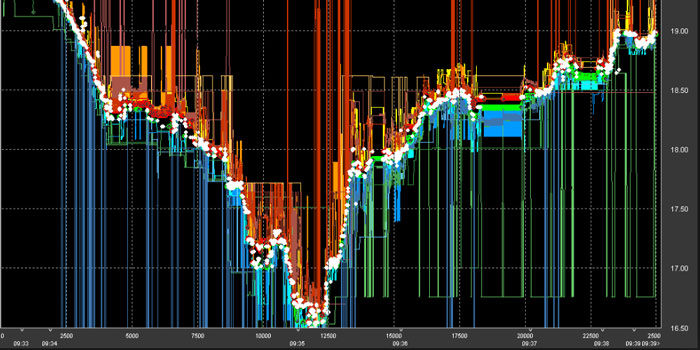Many people just starting out investing find the idea of picking stocks by hand quite scary. Because of resources such as indexes and mutual funds, you won't have to conduct the study type often required to start investing. Without having to select each investment personally, you may invest in a diverse range of assets using mutual funds or index funds.
The primary distinctions are found in the management of these funds and the possible earnings with them. Over the most recent few years, there has been a notable transition away from mutual funds that are actively managed toward passive products such as index funds.
The rationale behind such a step is that, contrary to popular belief, experts in the field have found that actively managed funds do not necessarily outperform their benchmark. Investors think paying more for actively managed funds is not worth it.
And instead, choose funds that track an index, which may provide superior returns in the long run. In this piece, we'll contrast mutual funds with index funds so readers can make informed decisions about their investment approach.

What Are Index Funds?
Index funds are a kind of mutual fund intended to replicate a market index's performance. Index funds can also be called index tracking funds. The S&''P 500, the Russell 2000, and the FTSE 100 are just a few market indexes followed by funds that are now accessible.
One type of passive investment is referred to as an index fund. Because of this, portfolio managers do not need to spend a significant amount of time or money selecting stocks that are appropriate for investments or rebalancing the portfolio. The investment portfolio is rebalanced about once every three quarters on average.
Because these funds have little operating and administrative needs, they are efficient in terms of cost. These funds are typically considered low-risk and straightforward long-term investments due to their simplicity. As a result, they are frequently utilized in various retirement programs.

What Are Actively Managed Funds?
Actively managed funds have a portfolio manager or team of portfolio managers who actively seek to outperform a benchmark (usually a broad index). These seasoned managers are putting in the effort to accomplish this objective by taking care of all the day-to-day choices regarding actively managed funds, investigating investment possibilities, and purchasing and selling investments. In comparison, an index fund also has a portfolio manager. Still, the objective of the fund is not to outperform a certain index but rather to provide results that are comparable to that index.
Index Funds vs. Actively Managed Funds
Performance
Comparisons will be made between the performance of index funds and mutual funds to demonstrate how each kind of fund responds to different market circumstances. Actively managed mutual funds, particularly equity-focused mutual funds, have as their primary objective the outperformance of the current market benchmarks.
Fund managers are motivated to combine and diversify their holdings for this purpose. These funds outperformed the market and generated greater returns amid market drops in various sectors and businesses.
Cost
Investors can save money by using index funds instead of actively managed ones. Funds typically impose an expense ratio (the yearly fee charged to investors to cover the cost of running the fund) of less than 0.1%.
Alternatively, actively managed funds can request expenditure ratios up to 0.7%. Still, a person's investment style and goals need to inform the investment fund they choose. If you're looking for a diversified, low-risk investment with a high likelihood of success over the long term, index funds are a good choice.
Implicit Risks
An investment in a mutual fund is never without some degree of risk. Market volatility is especially relevant given the prevalence of mutual funds and index funds, both types of mutual funds. A key contrast between mutual funds and index funds is the nature of the risk taken.
For actively managed funds, the degree of danger is very sensitive to the market value of the holdings. Investments in major companies, for instance, often yield satisfactory rates of return with modest risk.
A more risky strategy employs small and medium-sized company finances. These funds target investments with a high potential for growth and superior returns. They might suffer far greater losses in a bear market than larger companies.
Index Fund Investment Over Actively Managed Funds
Returns on index funds might vary depending on how the market does as a whole because index funds are subject to market risk. Given that the index determines the fund's makeup, this danger is inevitable.
However, because actively managed funds manually choose stocks and those stocks' performance may or may not be affected by market changes, they can mitigate this risk. Benchmark funds have less stock turnover since their portfolios are modeled after an established index.
Traders and investors can benefit from the resulting reduced brokerage and transaction fees. Due to the fund managers' restricted involvement, index funds have reduced management fees.
As a result, passively managed funds have a lower expense ratio. Compared to index funds, which typically have cost ratios of 0.5 percent or less, actively managed funds have projected average expense ratios of 2.2 percent to 2.5 percent.
Conclusion:
Index and actively managed funds are two types of investments that can assist you in reaching your financial objectives; however, they do it in very different ways. Investing in one will allow you to take advantage of passive income opportunities without requiring active participation.
You will get an actively managed fund with the other option, which has the potential to outperform the market in certain circumstances. Consult a financial adviser if you are wondering which option is most suitable for achieving your objectives. Both of these types of investments have the potential to contribute to a person's wealth throughout their lifetime.




